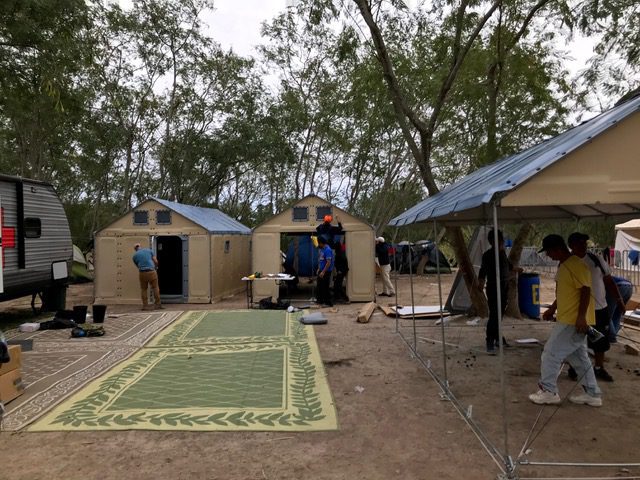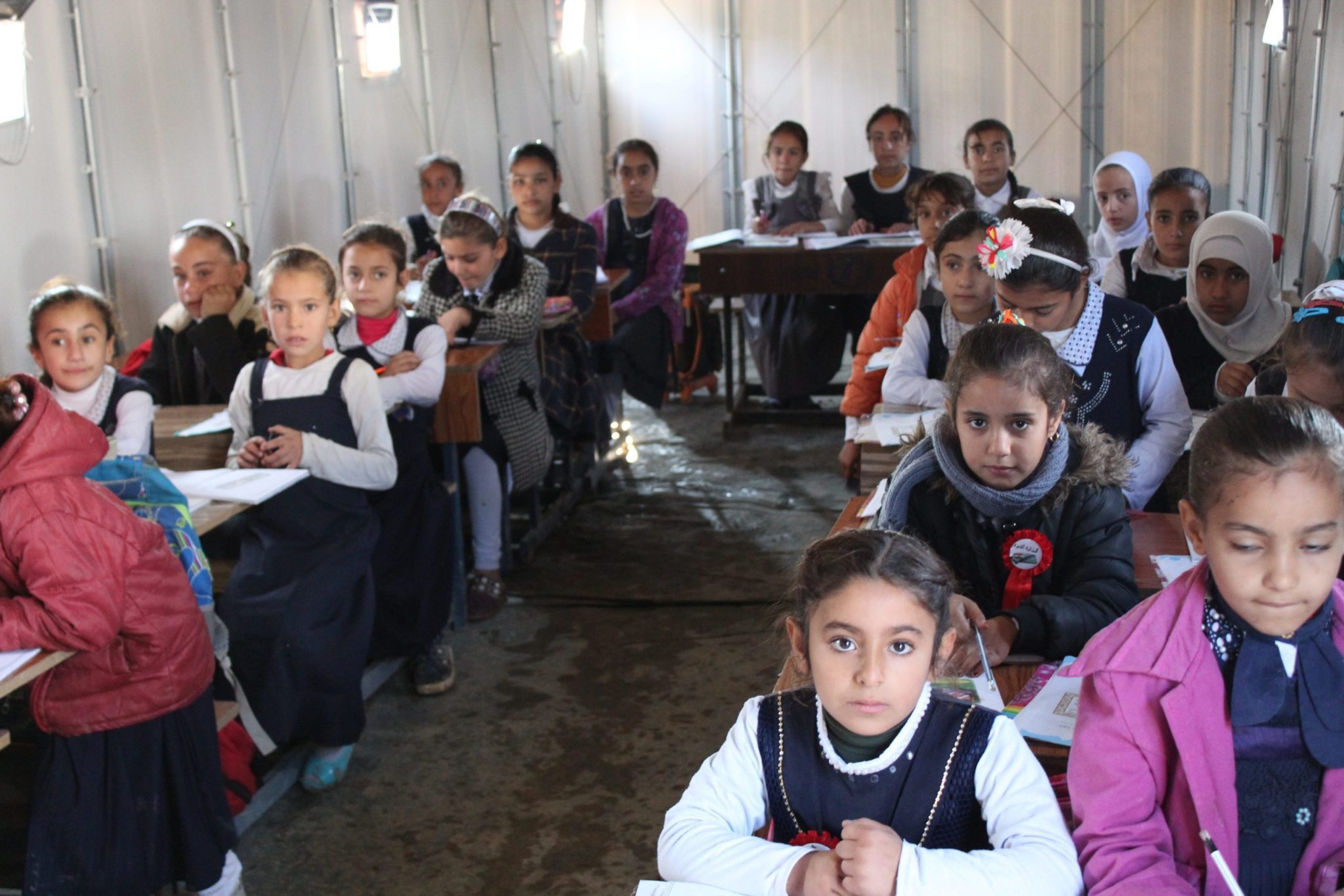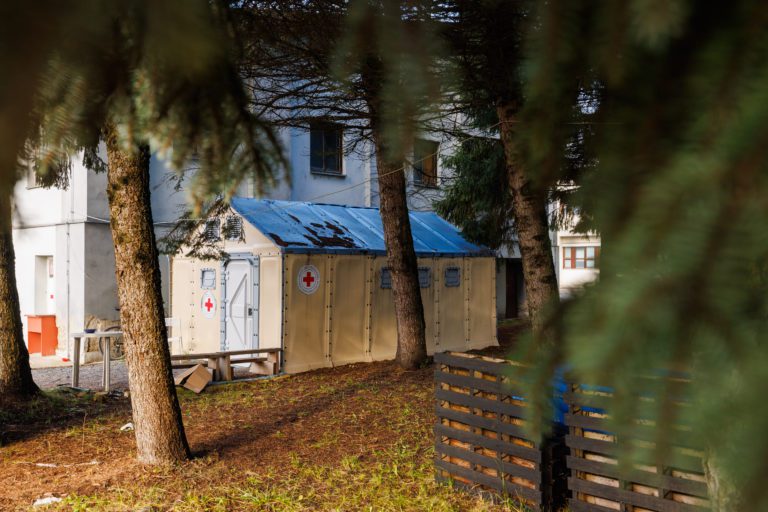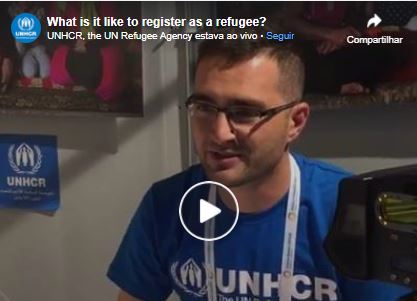As governments around the world continue to battle the Covid-19 pandemic – which to date has claimed at least 374,000 lives globally – our partner organisations prepare for eventual outbreaks in the camps and settlements where they operate.
Matamoros, Mexico
Outside Matamoros in Mexico, on the banks of the Rio Grande river, live around 2500 asylum seekers from countries in Central America in a temporary camp. These men, women and children are waiting for their asylum cases to be processed by US authorities. Just across the river from the camp lies the city of Brownsville, Texas.
The camp is served by a coalition of grass-root groups and volunteers: the NGO Global Response Management (GRM) has provided medical assistance in the camp since September 2019 and uses Better Shelter units in their daily operations.
Preparing for an outbreak
We spoke to Blake Davies, Paramedic and Director of Operations at Global Response Management in Matamoros, Mexico to hear about the situation in the camp and how he and the team have prepared for an eventual Covid-19 outbreak.
Have there been any confirmed cases of Covid-19 in the camp so far?
Blake Davies: There are currently zero cases of Covid-19 in the camp. We have placed multiple people into isolation out of an abundance of caution and in line with our Covid-19 screening protocols. All of these people have been found negative of Covid-19, but we ask them to isolate while awaiting additional testing.
What measures has GRM taken to prepare for an eventual outbreak?
BD: We have developed patient screening pathways to identify possible Covid-19 patients. This begins when a patient presents to our clinic. If they have any signs of possible Covid-19 we place a mask on them, begin our assessment and then transfer them to our isolation area for further exam. The isolation area is approximately 100 m south of the camp and is next to our field hospital. Any patient that is too ill to self-isolate we transfer to our hospital. Our hospital can treat 20 patients with oxygen therapy, advanced cardiac monitoring, ultrasound, x-ray, and will be staffed 24 hours a day once we have patients.
We have been doing outreach to all of the countries represented in the camp about the importance of handwashing, isolation, limiting contact with the outside world, and signs and symptoms of Covid-19.
We have increased the number of handwashing stations and there is also a work crew that cleans all the bathrooms and handwashing stations multiple times a day.
We have trained all of our in-country staff in proper PPE use and the decontamination procedures after treating a patient. We have trained local clergy in how to wear the PPE so they can sit with critically ill patients and/or administer last rights to the dying.
We have been distributing cloth masks, zinc, and Vitamin D to camp residents. Vitamin D and zinc have been found to improve a patient’s immune system prior to becoming sick of Covid-19.
We have a hotline number all camp residents can call to have a remote consult with our staff if they are feeling sick. This hotline is also given to anyone that has to go to our isolation area so they can still have regular contact with doctors while isolating.
Are many camp residents especially at risk?
BD: During the month of April, 17% of patients presenting to our clinic had at least 1 risk factor of Covid-19 (hypertension, diabetes, or age over 65). There were no patients that presented with past respiratory disease. Of all the patients we have treated in Matamoros, 15.4% are considered to have at least one risk factor.
What do your patients say about the outbreak? Are they worried?
BD: Everyone appears to be very pragmatic about the situation. Activity inside the camp is down and you don’t see as many people congregating. The people living in this camp have experienced so much hardship to get where they are and this is just another hurdle to get over. Everyone appears upbeat and very resilient. The good news is they trust our medical staff to provide them with high-quality care which they know is not happening throughout Mexico. At first, I was worried people would not take Covid-19 seriously, but the asylum community does get news from outside of the camp and they see the reality of this virus.
What is your main concern about the outbreak? What are your hopes?
BD: My biggest concern is twofold: 1) The healthcare workers that are treating the residents of the camp will most likely be the ones bringing Covid-19 into the camp. We need to be there and we take increased precautions to decrease that from happening. 2) When Covid-19 hits this camp it will spread like wildfire through the camp. People cannot properly distance themselves inside this camp.
What gives me hope is that we have been planning for this since January, have our plans in place, and have the ability to test the entire camp. As far as I know, we are the only asylum camp on the entire US/MX border that has a Covid-19 field hospital on site and we are the only refugee camp that does not have Covid-19 in it. Too early to tell if that is due to luck or the preventative measures we started very early.
Read more about Global Response Management’s work in Matamoros here.




